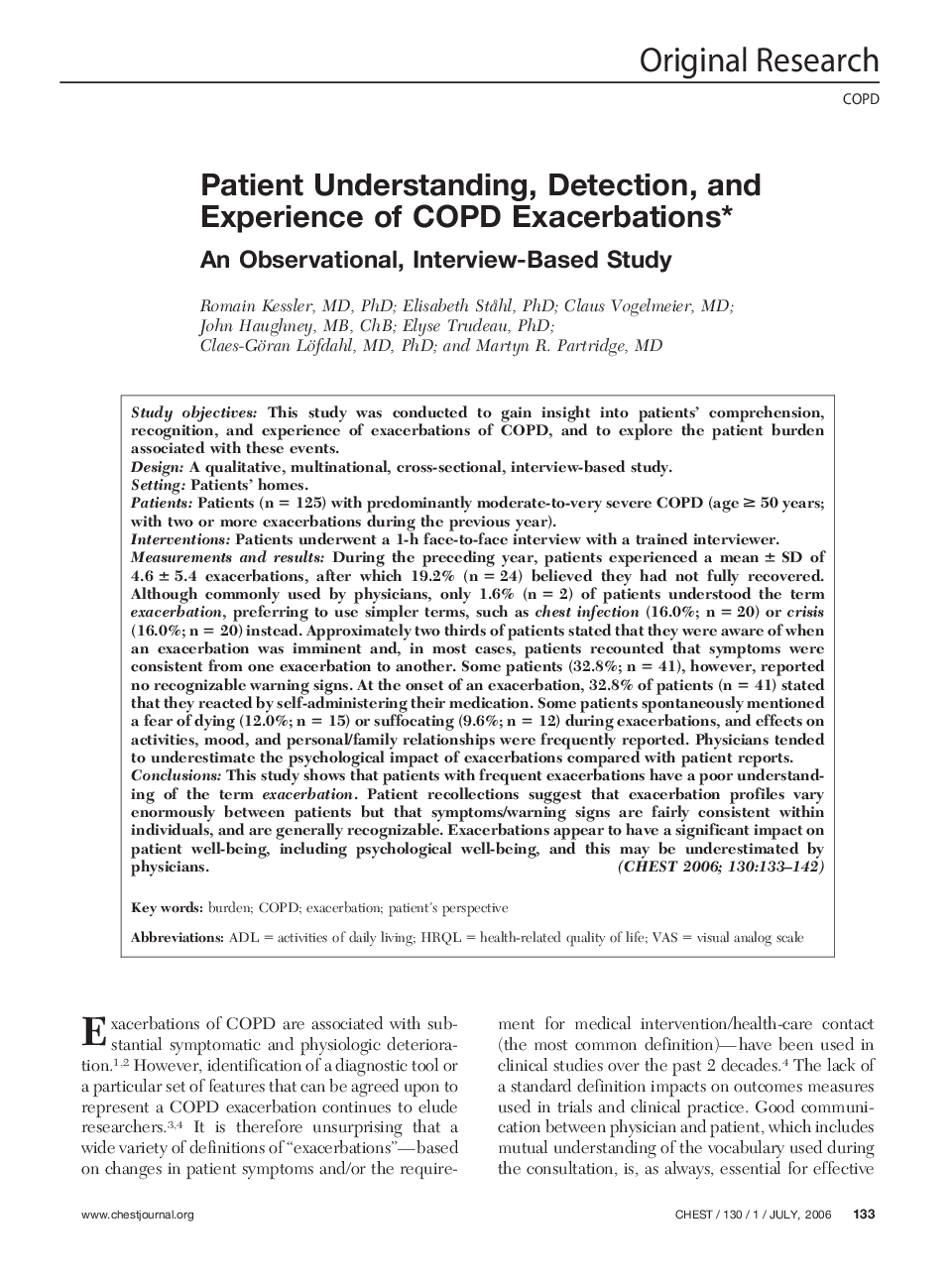| Article ID | Journal | Published Year | Pages | File Type |
|---|---|---|---|---|
| 2905180 | Chest | 2006 | 10 Pages |
Study objectivesThis study was conducted to gain insight into patients’ comprehension, recognition, and experience of exacerbations of COPD, and to explore the patient burden associated with these events.DesignA qualitative, multinational, cross-sectional, interview-based study.SettingPatients’ homes.PatientsPatients (n = 125) with predominantly moderate-to-very severe COPD (age ≥ 50 years; with two or more exacerbations during the previous year).InterventionsPatients underwent a 1-h face-to-face interview with a trained interviewer.Measurements and resultsDuring the preceding year, patients experienced a mean ± SD of 4.6 ± 5.4 exacerbations, after which 19.2% (n = 24) believed they had not fully recovered. Although commonly used by physicians, only 1.6% (n = 2) of patients understood the term exacerbation, preferring to use simpler terms, such as chest infection (16.0%; n = 20) or crisis (16.0%; n = 20) instead. Approximately two thirds of patients stated that they were aware of when an exacerbation was imminent and, in most cases, patients recounted that symptoms were consistent from one exacerbation to another. Some patients (32.8%; n = 41), however, reported no recognizable warning signs. At the onset of an exacerbation, 32.8% of patients (n = 41) stated that they reacted by self-administering their medication. Some patients spontaneously mentioned a fear of dying (12.0%; n = 15) or suffocating (9.6%; n = 12) during exacerbations, and effects on activities, mood, and personal/family relationships were frequently reported. Physicians tended to underestimate the psychological impact of exacerbations compared with patient reports.ConclusionsThis study shows that patients with frequent exacerbations have a poor understanding of the term exacerbation. Patient recollections suggest that exacerbation profiles vary enormously between patients but that symptoms/warning signs are fairly consistent within individuals, and are generally recognizable. Exacerbations appear to have a significant impact on patient well-being, including psychological well-being, and this may be underestimated by physicians.
